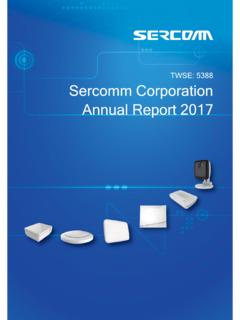Transcription of ETNO Chairman’s speech at the ETNO MLex …
1 ETNO chairman s speech at the ETNO MLex Regulatory Summit 25 June 2014, Brussels Dear guests, Distinguished speakers, Dear colleagues, Also on my behalf, a warm welcome to the third ETNO MLex Regulatory summit. Last time we spoke, at the April workshop on the Italian EU Presidency, it was before the European elections. As Daniel just reminded us, these days Europe is discussing its new leadership, but policymakers and stakeholders have also effectively started shaping the debate on the policy and regulatory landscape in which we will work for the coming five years. ETNO has been the strong and reliable voice of the telecoms industry in Brussels for over 20 years. Our companies are Europe's digital spine: they have been and they will be the enabler of a smarter, more competitive and prosperous Continent. Then, in the context of today's regulatory conference, let me tell you upfront what our advocacy objective is in this field: ETNO and its members want to promote innovation and investments in network infrastructures.
2 And we believe that this cannot be achieved without significant changes to the regulatory environment. THE MARKET CONTEXT In order to be more explicit about what we mean by this, let me first draw the market context. When the current telecoms regulatory framework was first conceived, we actually lived in a different world. Today's markets present a series of exciting opportunities for telecoms operators, but also some important challenges. Let me unveil some forecasts from the ETNO IDATE Annual Economic Report, which we will present at the end of the year: they were delivered to us last May and cover the EU countries. According to the interim results, the number of both fixed and mobile broadband subscriptions is expected to grow this year. Mobile subscriptions will be 700 million, compared to 691 last year. Fixed broadband subscriptions will reach 155 million from 149 in 2013. Still, this is not expected to compensate the Average Revenue Per User called ARPU, which we predict to remain flat or slightly lower at around euros for fixed and 14 euros for mobile.
3 Overall, since 2009, mobile ARPU has decreased 16%, while fixed broadband ARPU also went down 6%. Against this scenario, we see that companies made an effort to maintain their level of investment in the period 2010 2013 to about 47/48 billion euros per year. But does this flat figure reflect the political and industrial ambitions of our Continent? We believe it doesn't, and we believe that this does not match the levels of technological innovation which are currently seen in ICT markets either. Then, let's work together to raise our level of ambition and match it with the reality behind the fact and figures I just mentioned. This reality is about the need of increased investments for updating existing networks and building new, cutting edge networks. This reality is about a changing scenario in which cable operators have emerged from being local TV companies to effective network competitors. Competitors that come on top of utility companies and municipalities that, in some geographical areas, contribute to creating a varied competitive scenario.
4 This reality is about an ever increasing convergence of different platforms, including convergence between fixed and mobile. This reality is about opportunities as exciting as the growth of data usage or the increasing role of content and video, which are products to be provided in addition to traditional voice and access services. As you can understand, our reality is also about the disruption of traditional telecoms revenue models, which are today challenged by new internet players, who for example are offering the same services for free in exchange for the new currency: personal data. FIXED & MOBILE NETWORKS IN THE PICTURE But where do networks fit in this scenario? Why should we bother about these invisible pipes on which exciting content and services run? Well, mainly, because they are not only pipes. Our networks are the backbone of Europe's digital progress. And arguably, in a fully digitized future, they are the very core of Europe's progress as a whole.
5 But networks aren't only the pre requisite to ubiquitous connectivity. They are effectively the enabler of new, exciting services in an increasingly convergent world in which fixed, mobile and cable all concur to deliver world class connectivity. In this context, we need to acknowledge that fixed networks also in the context of their backhaul capacity are at the very core of such connectivity. And they will require the most significant chunk of investments going forward. For this reason, I want to stress once again that we need them to be rentable if we are to allow the level of investments that we all need and want. As much as mobile needs the right level of remuneration, so does fixed. Therefore, in summary, the question for us is straight forward: where do we find the money to invest in Europe's digital future? This might sound like it's a Gordian knot. Let me propose our solution to cut it, and unleash new opportunities for all.
6 OUR SOLUTION / Review the regulatory framework First, we need to review the regulatory framework for electronic communications. We cannot keep on regulating as if all the things I described before didn't happen. The objective of ensuring open and competitive markets is not compatible anymore with a bias towards entry promotion policies. The choice in our view is clear: either regulation evolves to allow operators to respond to new challenges and unlock a new season of investments, or it will become an obstacle to doing this. In order to be an enabler rather than an obstacle, regulation will need to give a clear input to favor open and transparent commercial agreements as opposed to regulated prices. When looking at member states, we still see an urgent need to recognize that cost orientation for access to new networks simply kills incentives to invest. We are convinced that more is needed. In this context, let me give you an example.
7 We gathered some numbers that can be drown from observing the implementation of the Costing and non discrimination recommendation, which was approved last year. The promise, there, was that of a more predictable and flexible regulatory environment for investments in next generation networks. The Commission delivered an important regulatory signal to National Authorities. Today, only one of them consistently implemented it. While, according to our analysis, 4 countries are currently being brought to phase 2 for not implementing the recommendation correctly, 5 received substantive comments from the Commission and the others are still on their way. This explains well our sense of urgency when it comes to improving the regulatory environment for network investments. In addition to this, it is urgent to start addressing a need for a simpler regulatory landscape, in which clear deregulatory inputs become tools to recognize today's market reality.
8 If we don't address this issue, rules designed many years ago to address gaps between incumbents and alternative operators will paradoxically end up creating an unequitable and depressive regulatory environment. Regulation is appropriate only when justified by market conditions and consumers' needs. Think, for example, at recent claims that wholesale access to fiber backhaul should be regulated. Where is the retail market rationale for that? We are glad that both the European Commission and the BEREC are inspired by a need to eliminate regulation where no longer justified. ETNO believes that we need a clear, strong and unequivocal deregulatory stance here. Similarly, when looking at mobile markets, we argue for a policy framework that better rewards investments and network differentiation. Operators should have stronger incentives to invest, as weakening investment incentives brings to vast differences in the performance of networks, which is clearly unacceptable for both consumers and politicians.
9 OUR SOLUTION / Net neutrality The second thing we need, if we are to cut that Gordian knot, is to be careful when introducing new regulation that has to do with the innovation potential of the internet value chain. On this point, I'm sure we agree even with our harshest opponents: be careful when touching the internet! As ETNO, we started following the Net Neutrality debate a long time ago. In all these years, we consistently provided technical input to the European Commission and other bodies, on this topic. As a matter of fact, we believe that the Commission, in their original legislative draft, made a sensible attempt to ensure both users' rights and the right to innovate. We agree and support the ability of European citizens to access any services, applications and content of their choice. We equally support harmonized rules, as opposed to fragmented and unclear rules in different European markets. And we are also strong advocates of the right to innovate.
10 Because we believe that it brings better services and more opportunities for all. Unfortunately, a very rushed and politicized parliamentary process led to unclear propositions for amendment. We talked to our engineers, who are those making sure, 24 hours 7, that the internet runs smoothly. They have looked at the position of the previous Parliament, they were honestly puzzled at its practical feasibility and they also warned us against its harmful potential for the entire internet ecosystem. Let me be clear about our objectives here: First, our mission is to provide access to the internet to people and we want to provide enough bandwidth to everyone. We invest heavily in Internet access. That is what our customers expect. But for the Internet to work, we also need traffic management that ensures the quality of the networks. Second, we want people to pay for what they use. Why should ordinary users cross subsidize users or businesses with specific needs?







